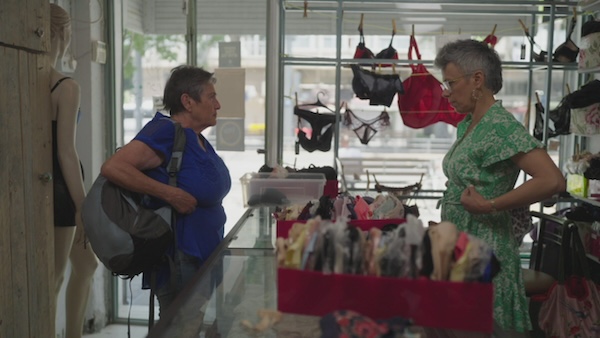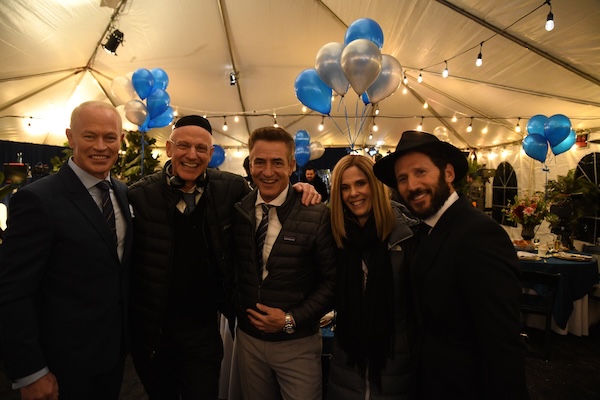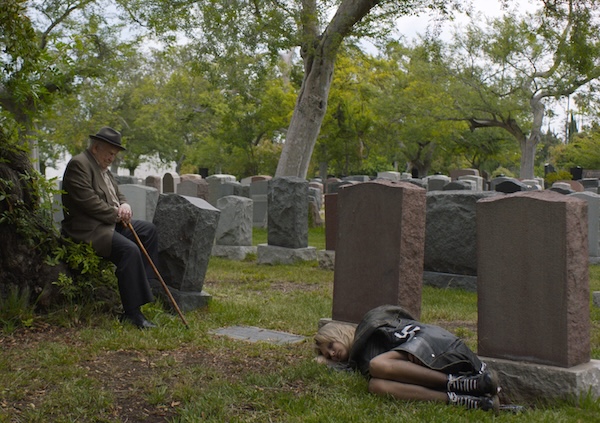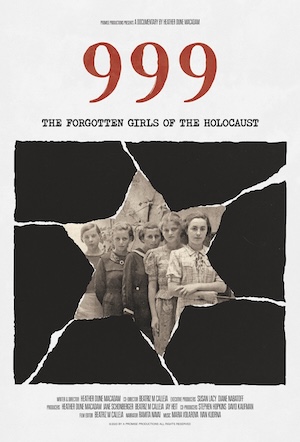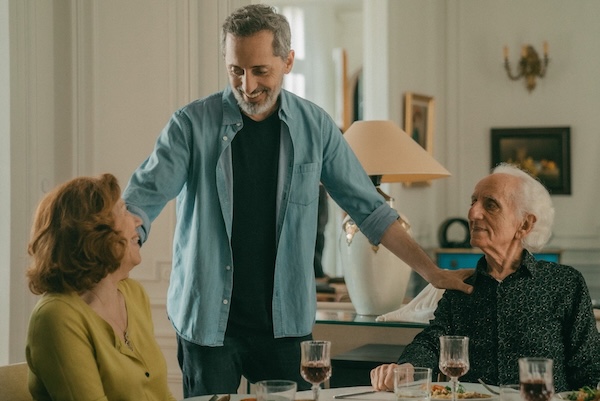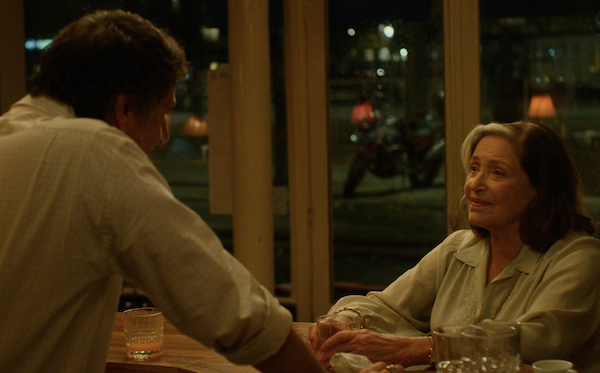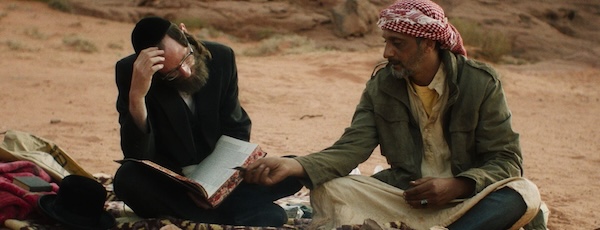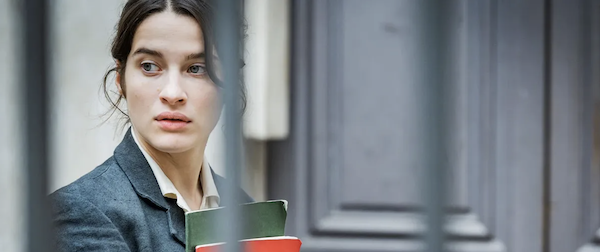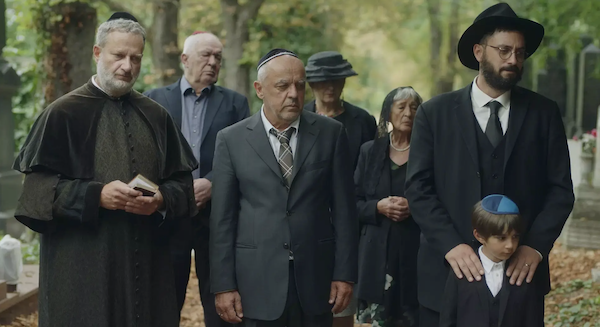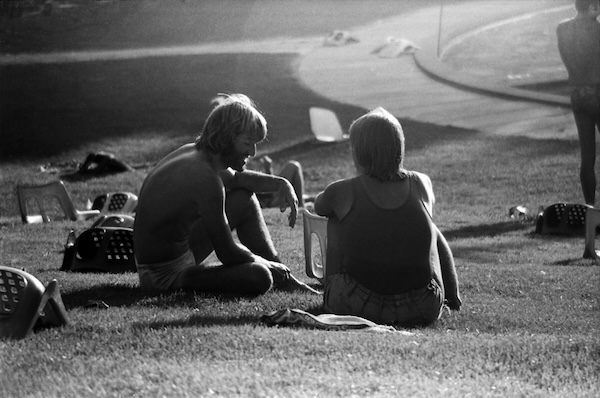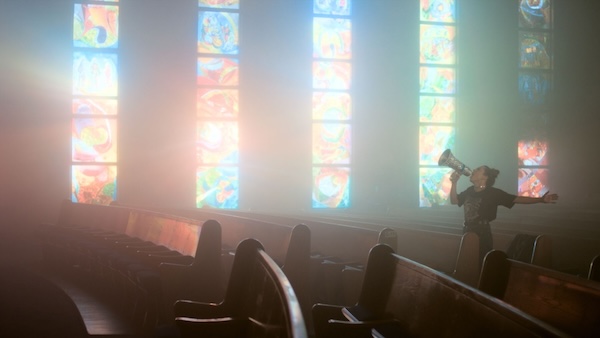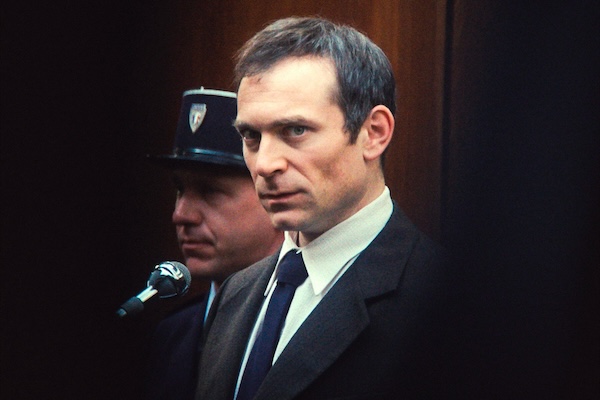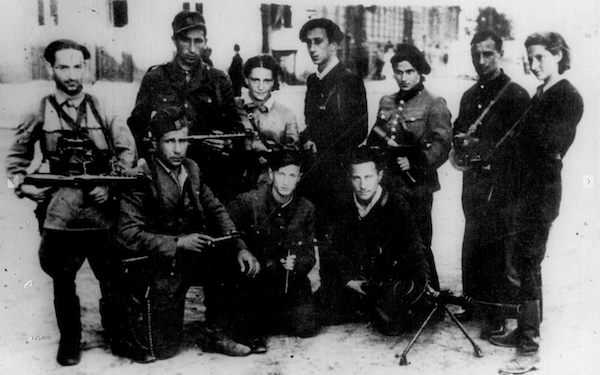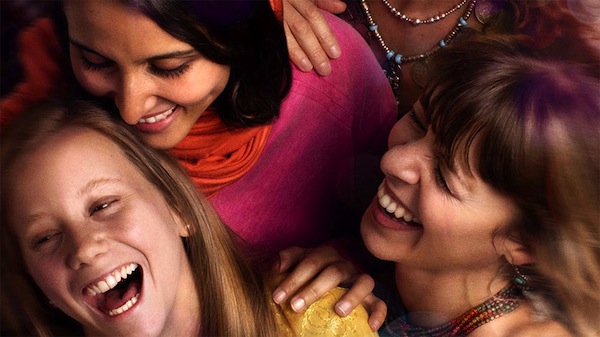Full Support shines a positive, life-affirming light on Noa’s Bras, in Jaffa. (photo by Tulik Galon / Go2Films)
The Vancouver Jewish Film Festival is now underway, with screenings at Fifth Avenue Cinemas through May 1, then at the Rothstein Theatre May 2 and 4. There are numerous films being presented, from documentaries to mysteries, dramas and more.
Being supportive
It may seem like a strange thing to say, but women should put Noa’s Bras, in Jaffa, on the itinerary of their next trip to Israel. If you don’t need a bra, you can go try some on, just for the experience of being well taken care of. At least, that’s how it seems a visit would go, from watching Michal Cohen’s documentary, Full Support.
Full Support shines a positive, life-affirming light on this store to which women come in need of varying sizes, looks and fits. Some brave clients share their stories with the filmmakers, and the result is a moving portrayal of women of all ages, socioeconomic backgrounds and life circumstances. Among them are cancer survivors, victims of abuse, divorcées; one woman wants something sexy, another just wants something comfortable, a preteen looking for her first bra comes in with her mom. The staff – maybe one or two of whom are proprietors? (it’s not clear) – are knowledgeable, respectful and helpful. It is amazing to see the staff literally size up a client from across the counter and then know which of many, many boxes they must go to for the bras they’re looking for. The store apparently offers 189 sizes!
Outside the store, the camera catches men walking by the shop, some even peeking in, then almost running away with embarrassment. There are other moments of humour, as well as many touching moments, including when one of the store clerks pops into the tailor next door for him to sew up this or that and we find out that he and his wife are waiting for a permit to visit their daughter in Nablus.
Full Support is an interesting, thoughtful and funny film.
– CR
A murder mystery
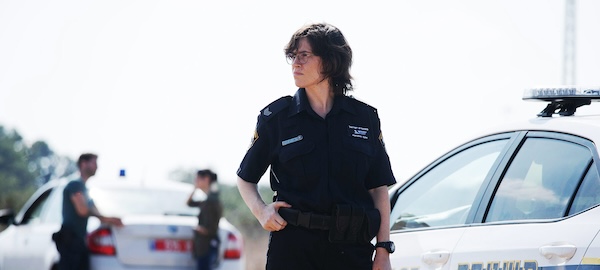
Family secrets are the theme in Highway 65, in which a demoted Tel Aviv detective finds herself doing slashed tire and lost phone investigations in the hick town of Afula.
Daphna (Tali Sharon), the downgraded cop, is a shlubby Columbo with appalling table manners but proficiency at her job. The lost phone – a seemingly innocuous investigation – leads to something much larger. The phone’s owner, Orly, has been missing for a week and no one has reported her absence.
It’s a small town where everyone knows everybody’s business and outsider Daphna finds herself in the midst of a perversely convoluted family drama, crossing personal and professional boundaries with nonchalance.
The family is marking the 10th yahrzeit of the missing woman’s husband and Daphna’s investigation puts a serious crimp in the commemoration. The family has an ominous mafia feel to it and the film jolts the viewer with an instant of truly shocking violence that illuminates the narrative and ultimately fingers the culprit.
Fans of quality Israeli TV will recognize Sharon from her role as Hodaya in Srugim, about Orthodox singles in Jerusalem. The male lead, Matan, is played by Idan Amedi, a singer-songwriter and actor known for playing Sagi Tzur in Fauda. Amedi was seriously injured during reserve duty in January 2024, when six fellow soldiers were killed in Gaza.
– PJ
Relentlessly talented
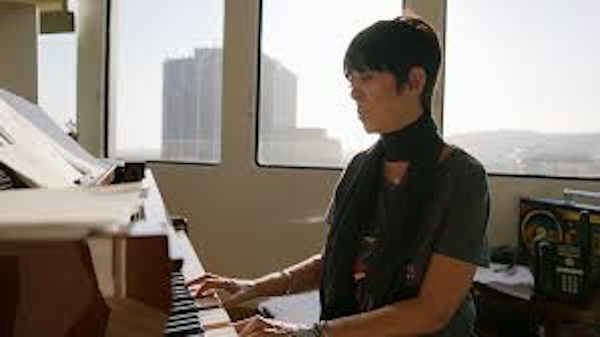
Everyone knows a song that was written by American songwriter Diane Warren – everyone. For more than 40 years, she has been writing hits in multiple genres. From “Rhythm of the Night,” performed by the band DeBarge; to “When I See You Smile,” for Bad English; to “I Don’t Want to Miss a Thing,” sung by Aerosmith; to multiple songs performed by Beyoncé, Michael Bolton, Cher, Celine Dionne, Meat Loaf, Whitney Houston and so many others. Her writing has earned her a long list of awards and 16 Academy Award nominations – while she has yet to win an Oscar for a particular song, she was recognized with an honorary Oscar in 2022 for her achievements.
The documentary Diane Warren: Relentless, directed by Bess Kargman, introduces audiences to the seemingly chaotic genius of Warren, who was born in Van Nuys, Calif., into a middle-class Jewish family. The third daughter of David and Flora Warren, she is much younger than her sisters and knew, from a young age, that music – rather than something more conventional – was the path she wanted to follow.
Her parents struggled with how to parent Warren. Her dad was supportive of her music dream, at least, but her relationship with her mother was troubled till the end. Warren grew up feeling an outsider both at home and at school. It is not clear when she was diagnosed, but having Asperger’s syndrome contributes to both Warren’s genius and her struggles. She also shares that she was molested as a child, in the context of having written “Till It Happens to You,” which Warren wanted Lady Gaga, also a survivor of sexual assault, to sing.
A lot of Warren’s collaborators lend their views to this documentary, and their respect for Warren is clear, even when there are hurt feelings. For example, she gave both LeAnn Rimes and Trisha Yearwood the song “How Do I Live,” but both versions ended up being a hit.
A master of romantic songs, Warren has no romantic partner, only a love for creating music – something she is driven to do and will continue to do as long as she is able.
Relentless is a fascinating look at a fascinating person.
– CR
Quest for the past
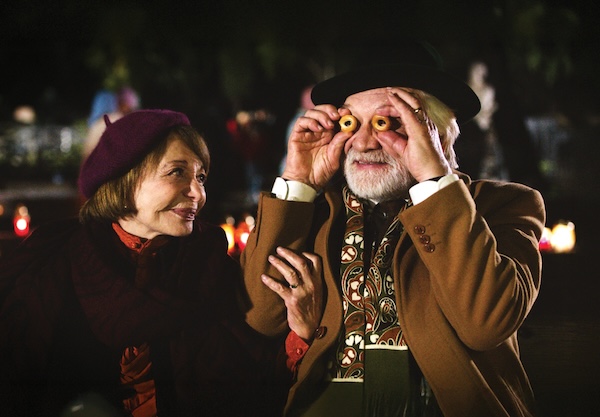
One probably wouldn’t expect lots of yuks in a film about a grandmother and granddaughter traveling from Israel to Poland to reclaim property lost during the Holocaust. But the first great guffaw in the closing night film of the Vancouver Jewish Film Festival, The Property, comes early, with the frustrated chaperone of ill-behaved high school students shouting, “You don’t deserve to be taken to the concentration camps!”
Dark humour and subtle situational absurdity shine a light on serious paradoxes, twists of fate, loss and possible redemption. The film by Dana Modan, based on a graphic novel by her brother, Rutu Modan, centres around distinctive characters and intersecting personal and world history.
The trip’s mission seems straightforward, but Savta has a secret – and a secret agenda. Secrets abound, actually, but the conundrum, as the granddaughter observes drily, is that no one really cares.
Ostensibly, the family is returning to Poland to regain physical property stolen during the war – an apartment building – but it becomes clear almost immediately that the grandmother is after something else. The viewer’s assumptions about her motivations will be subtly upended.
The grandmother, Regina (Rivka Michaeli), and granddaughter, Mika (Sharon Strimban), spend much of their time in Poland doing their own things, but their experiences – past and present – imitate the other’s. History and the present day seem to merge, then diverge, when Mika stumbles into a too-authentic immersive experience at a museum that is the essence of dark humour, as is the interaction with a museum curator who takes her work just a tad too seriously.
Family secrets, though, are the heart of the film, as are the complex interactions between Jewish and non-Jewish Poles across generations.
Beginnings and endings and the sense that the past keeps repeating are a thread throughout The Property.
“How many times can you start a life all over again?” asks the grandmother at one point. But Mika’s experience suggests it’s all a big repetitive cycle anyway.
– PJ
For tickets to the Vancouver Jewish Film Festival, visit vjff.org.

